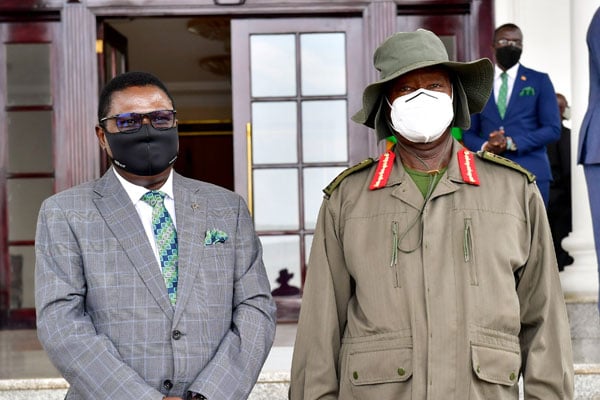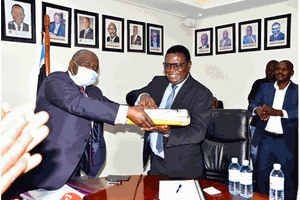
Philip Matogo
The Opposition Democratic Party (DP) recently launched a membership registration exercise in the Acholi sub-region.
The party’s president general, Mr Norbert Mao, who is also minister for Justice and Constitutional Affairs in the ruling National Resistance Movement (NRM) government, also renewed his party membership after paying Shs2,000 for the party card.
However, it is time that Mr Mao thought about renewing his party instead.
Rebranding in politics, as in business, is a crucial. It enables a given entity to overcome a brand crisis, where one exists. And reassess its brand promise where such promise has been compromised, leading to a less than flattering reputation.
Right now, DP’s reputation is at its lowest. Nobody takes the party seriously. In fact, it would be fair to say that DP is a shadow of its former self.
However, the battle is not lost. DP can turn its fortunes around.
A successful rebranding campaign by the party would help it distance itself from any negative connotations surrounding its memorandum of understanding with the NRM. Then allow it to communicate its new and improved values to members and supporters.
This is not something new.
New Labour, under the leadership of Tony Blair and Gordon Brown, was a product of rebranding in British politics.
At a Labour Party conference, the New Labour initially materialised as a slogan in 1994. Then, it mutated into an unspoken party plank before attaining its majority, if you will, in 1996 in a manifesto titled “New Labour, New Life for Britain”.
Thereupon, the Labour Party was rebranded as New Labour.
You could say it was a new party. For it changed the aims and values espoused in Clause IV of its party rulebook and endorsed market economics while remaining post-Thatcherite.
I don’t have to remind you that New Labour dominated British politics for more than a decade.
In America, 34th president Dwight Eisenhower realised that his party’s electability was at stake and took a stab at new “Modern Republicanism,” which conceded the benefits of new deal liberalism as propounded by the Democratic Party.
Both these attempts at rebranding racked up resounding electoral spoils.
So Mr Mao must think about rebranding DP, which is in far worse shape than the Labour and Republican parties ever were.
Again, if DP rebranded, it could conceivably attract its Old Guard back to the fold.
We are talking about Kampala Mayor Erias Lukwago, Busiiro East MP Medard Lubega Sseggona, Bukomansimbi Woman MP Veronica Nanyondo, Butambala County MP Muwanga Kivumbi, Kalungu West MP Joseph Ssewungu, Nyendo-Mukungwe MP Mathias Mpuuga, Mukono Municipality MP Betty Nambooze, Makindye West MP Allan Ssewanyana, among others.
They are still reportedly DP at heart. So I suspect they treat wherever they are at present as something of a way station.
If DP gets its act together, they will return like Arnold Schwarzenegger in a hurry. Mr Mao must rekindle their love for the party if the party is to survive its wounds.
After all, it was Mao himself who said: “DP was founded for a reason and not a season. We might have lost the crops, but the seeds are still with us. We can rebuild the party.”
Another aspect of rebranding would be to relaunch DP as a national party.
As it stands now, it is a provincial caucus of those suckling the teats of NRM’s politics of the belly.
It shifted from Buganda to Acholiland. With rebranding, it can mark its countrywide territory. Anything less would spell political hara-kiri.
Mr Philip Matogo is a professional copywriter
[email protected]




